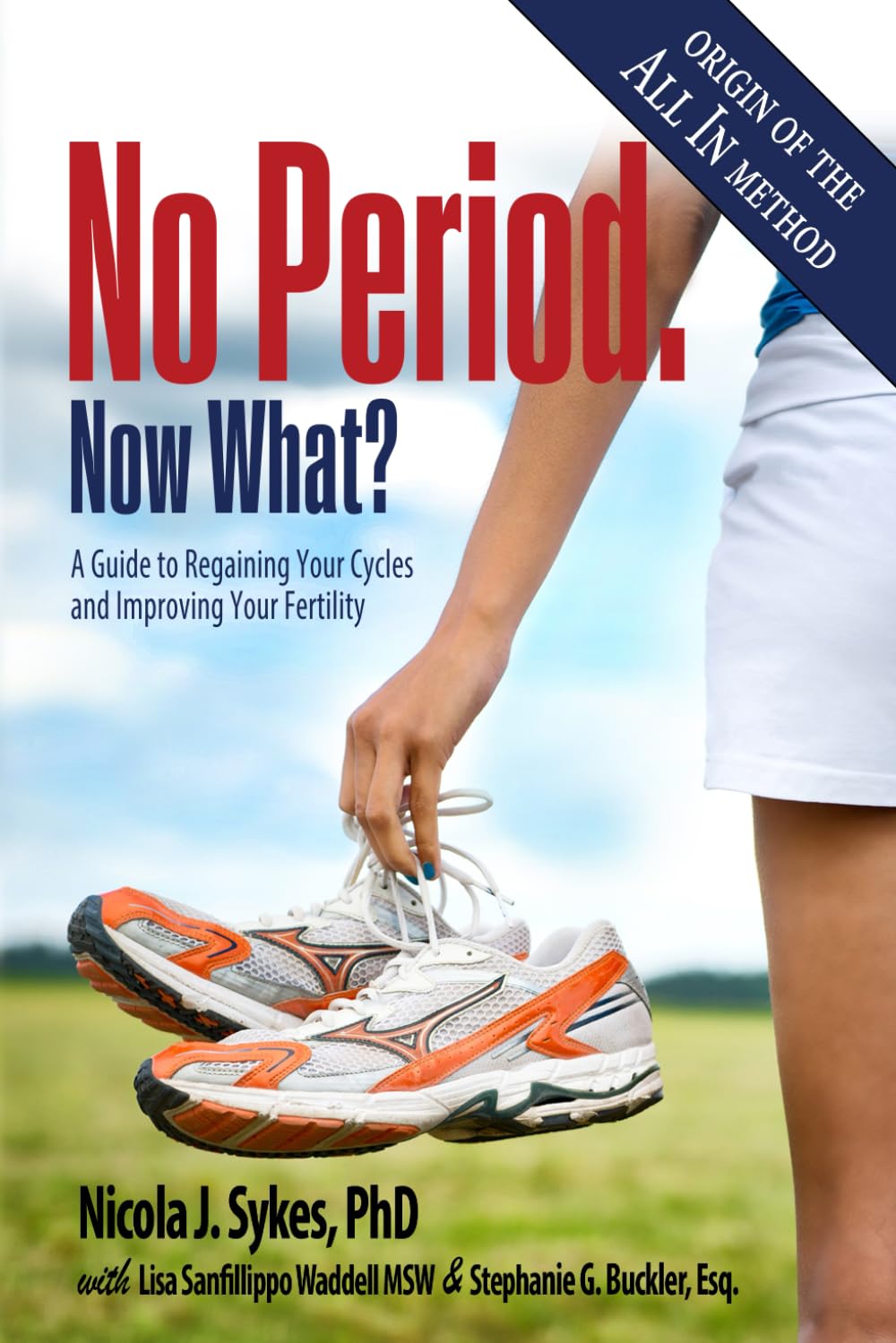About this deal
When the absent periods are combined with low levels of the female hormone oestrogen, there may be a risk of bones weakening. Oestrogen helps keep bones strong, and they start to weaken after menopause. If they become excessively weak and break (fracture) easily, this is called osteoporosis. This only applies to women who have not had a period for a long time (a year or more). It is particularly a risk for women whose periods have stopped due to early menopause, weight loss, anorexia nervosa or excessive exercise. Heart disease Some of the other birth control methods, such as the hormonal intrauterine device (IUD), implant, and injection can also result in amenorrhea.
No Period Now What | HA Resources FREE DOWNLOADS | No Period Now What | HA Resources
Having periods less often than normal is called oligomenorrhoea. The causes of this are much the same as the causes of absent periods discussed above. The most common cause is PCOS. Erratic periods You can calculate when your period will start and your peak ovulation times using an online period calendar. Andrew: Now, you were talking about having children and we need to ask the question about birth control pills. Do they help with recovery? She published her book " No Period. Now What?" which was updated in March of 2019 to be more “Health At Every Size” aligned. In addition, Dr Rinaldi performed the largest survey to date of women who likewise experienced amenorrhea. Welcome to FX Medicine, Dr Rinaldi. How are you? Andrew: So they're eating the fast foods and the high-caloric, poor nutrient-dense foods. So, how do you change that picture in your patients? And indeed, what sorts of foods, when we're talking about proteins, fats, and carbs, what types of foods should we be favouring versus what types of foods avoiding?
Is it normal to miss a period?
Periods usually begin at around the age of 12, although some girls will start them earlier or later.
No Period. Now What?: A Guide to Regaining Your Cycles and No Period. Now What?: A Guide to Regaining Your Cycles and
Endometriosis is a condition where tissue similar to the lining of the womb (endometrium) grows in other places outside the womb, such as in the ovaries and fallopian tubes. So, it's actually a really interesting field. But what I do tend to find in women that have HA is that, like we talked about, they've often had a fairly significant weight loss in the past. A condition where a hormone called prolactin is too high. This is called hyperprolactinaemia. The most common cause of this is a non-cancerous (benign) growth in the brain, called a prolactinoma. Pituitary tumor. A noncancerous (benign) tumor in your pituitary gland can interfere with the hormonal regulation of menstruation.
Nicola: It can either be a physical manifestation of high androgens or biochemically seeing that in your blood work. In women that’s, sort of, been maybe under fuelling, doing a lot of exercise, and has amenorrhea, I really strongly believe that it's imperative to get that blood work done. And if you're not seeing elevated androgens, it's almost certainly HA versus being PCOS. For most women this happens every 28 days or so, but it's common for periods to be more or less frequent than this, ranging from every 23 days to every 35 days. Listen in as Nicola discusses some of the causes and contributors of hypothalamic ammenorhoea, as well as her recommendations to help clients recover from this condition. Covered in this episode
No Menstruation (Absent Menstruation) - Healthline
Together we discuss toxic fitness culture, how to come out of exercise addiction thanks to the acronym FIL (Feel, Impact, Lesson), what Jamie understands as "movement for more" and how she helps her clients reframe their relationship with exercise. We also discuss what led Jamie to stop subscribing to Zumba as an instructor. Nicola: Just generally in terms of stress, I think that's actually the hardest part of the equation to really work on because, as you say, we tend to be in a very goal-oriented society and you've got all these things piled on top of you. We do talk about things like maybe doing some yoga or meditating or doing what you can to remove stress from your life. If you are using certain types of contraception. Some types of contraception may stop periods. They do not do so in all women; however, it is normal not to have periods (or to have very light periods) if you are using:Low body weight: A doctor may refer an underweight person to a nutritionist who can help them adjust their diet to reach a healthy weight.
No Period, Now What? With Nicola Rinaldi — Jessi {Ep. 054} No Period, Now What? With Nicola Rinaldi — Jessi
So they looked at what they called the “within-day energy balance.” So they computed on an hourly basis how much energy are they taking in, how much are they expending? They actually found that the women without periods were in an energy deficit for 4 hours more per day than those that did have their periods, which I find absolutely fascinating.
Physical defects such as structural problems in the female reproductive organs might be responsible for absent or delayed menstruation.
 Great Deal
Great Deal 